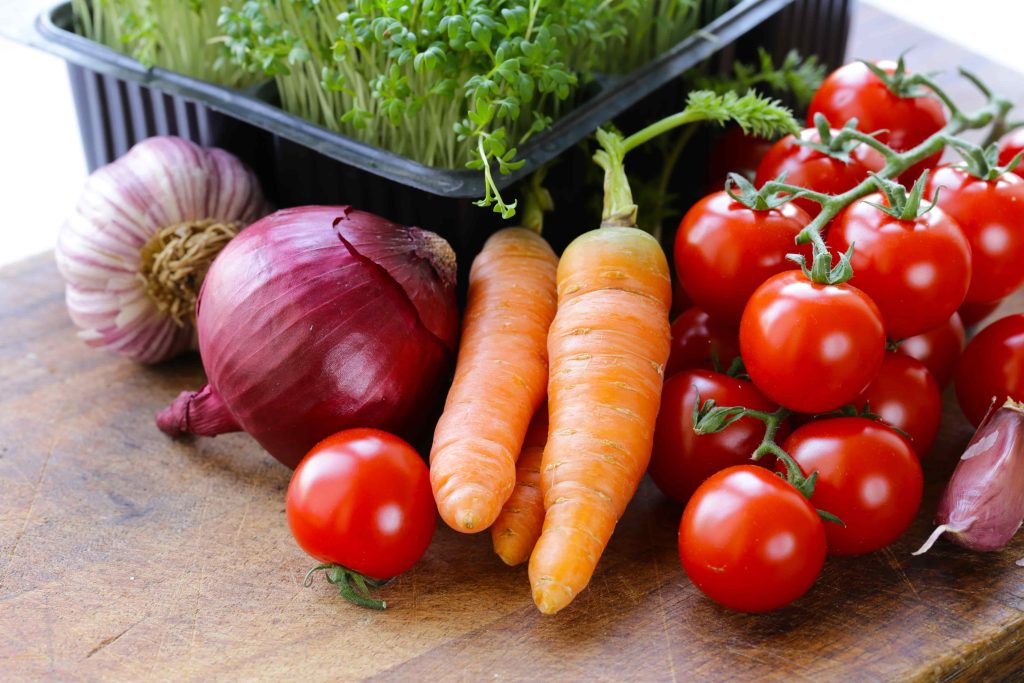How to Feed During Pregnancy?
During pregnancy, nourishing your body from the inside is critical to the health of both mother and baby. It is important to eat nutritiously and in variety to ensure you’re getting the necessary vitamins, minerals, and proteins. Here are some tips on how to feed yourself while pregnant.
- Get Informed: Before you start eating for two, it’s important to do your research. Talk to your doctor or midwife about your nutrition needs and what foods to avoid.
- Eat Variety: Eating a variety of nutritious foods is important during pregnancy, particularly when it comes to the five major food groups (grains, dairy, fruits, vegetables, and proteins). Focus on wholesome and nutrient-dense foods.
- Focus on Folic Acid: Taking folic acid is very important in the early stages of pregnancy to help prevent birth defects. As such, incorporating foods high in this vitamin is essential. Green vegetables, nuts, and whole grains are all excellent sources of folic acid.
- Incorporate Proteins: Consuming quality protein is important for growth of the baby along with providing energy for the mother. Great sources of protein include lean meat, eggs, tofu, beans, nuts, and seeds.
- Load Up on Iron: Pregnant women need to meet their higher needs of iron, as the body utilizes it to create red blood cells. Iron-rich foods such as red meat, eggs, and fortified cereals are beneficial.
- Eat Calcium: Increasing your intake of calcium-rich foods will help build strong bones and teeth for the baby. Dairy, leafy greens, sesame seeds, and tofu are all great sources of calcium.
- Avoid Risky Foods: Anything that is potentially unsanitary or contains high levels of toxins should be avoided, as it adversely affects the health of both mother and baby. Raw or undercooked meat, deli meat, unpasteurized dairy, unwashed/uncooked fruits and vegetables, and undercooked eggs should be avoided.
- Drink Water: Hydration is key during pregnancy, especially since your body is creating a new life form. Spread out 6–8 glasses of water throughout the day.
- Monitor Your Weight: Excess weight gain can cause negative health outcomes, so it’s important to be mindful of your caloric intake. Talk to your doctor about finding a healthy way to maintain a balanced diet and get enough nutrients for you and your baby.
- Find Balance: Healthy eating does not mean deprivation. You can still enjoy your favorite sweet treats in moderation. Additionally, if you don’t feel up to making your own meals, opting for healthy takeout is ok as well.
No matter how you decide to feed yourself while pregnant, it’s important to be mindful of the nutritional needs of both mother and baby. When in doubt, talk to your doctor or other medical professional.

Foods That Should Not Be Consumed During Pregnancy
Pregnancy is an important time for proper nutrition, but some foods need to be avoided for the health of you and your unborn baby. To ensure you’re nourishing your body properly, here is a list of foods that should not be consumed during pregnancy.
- Raw Meat: Raw meat, including hamburger, steak, or fish, should not be consumed during pregnancy, as it contains harmful bacteria that can cause food poisoning or other food-borne illnesses.
- Unpasteurized Dairy Products: Foods like unpasteurized milk, soft cheeses and yogurt pose a risk of infection due to the presence of pathogenic bacteria such as Listeria and Salmonella.
- Certain Fish: Large, predatory fish like swordfish, shark and king mackerel may contain high levels of mercury that can harm the developing baby.
- Raw Shellfish: Shellfish can contain harmful bacteria and could put you at risk for food poisoning. Therefore, it is best to avoid raw shellfish such as clams and oysters.
- Canned Fish: Many canned fish, such as tuna, contain large amounts of mercury and polychlorinated biphenyls (PCBs) that can harm the baby’s developing nervous system.
- Deli Meats: Deli meats are often contaminated with bacteria like Listeria and Salmonella. It is best to avoid eating deli meats altogether during pregnancy.
- Alcohol: Consuming alcohol during pregnancy can increase the risk of miscarriage, stillbirth or various birth defects. Therefore, alcohol consumption should be avoided at all costs.
- Caffeinated Beverages: Too much caffeine can lead to low birth weight and premature birth. Therefore, it is best to limit your intake of caffeinated beverages.
- Herbs and Supplements: Unregulated herbs, dietary supplements and non-prescription drugs can have an adverse effect on your unborn baby. Therefore, it is important to speak to your doctor before taking any herbal supplements.
- Unwashed Fruits & Vegetables: Unwashed fruits and vegetables can contain Salmonella, E. coli and other harmful bacteria. Therefore, it is important to thoroughly wash all produce before consuming it.
Although there are many foods that should be avoided during pregnancy, there are still plenty of healthy and nutritious options available to you. Pay attention to the foods you’re consuming and speak to your doctor if you have questions or concerns.

